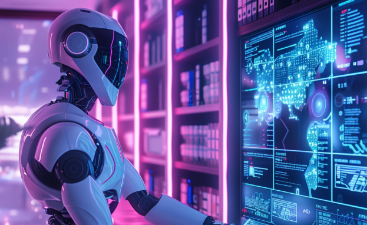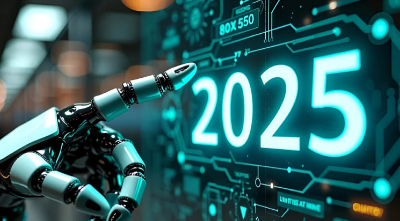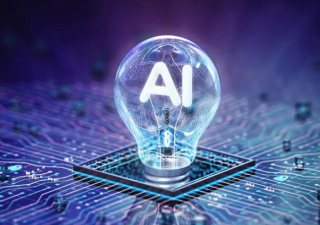What technological trends will shape our world in 2025?Following artificial intelligence, the forefront of technological development is evolving towards multiple deeply integrated directions. These directions not only extend the potential of artificial intelligence but also attempt to break through its existing boundaries.Just as the steam engine of the steam age, the generator of the electrical age, and the computer and internet of the information age, artificial intelligence is becoming the decisive force propelling humanity into the intelligent age. The global industry fully recognizes the significant role of AI technology in leading a new round of industrial revolution and is actively transforming its development, vying to establish a foothold in the AI innovation ecosystem.
As we accelerate into an era of rapid technological advancement, understanding the most impactful developments can give you an edge in adapting to the future. How will innovations like generative AI, 5G, and sustainable technologies transform industries, improve personal experiences, or unlock new business models?
Core Technology Breakthroughs
- Artificial Intelligence (AI) and Artificial General Intelligence (AGI)
Deepening Vertical Applications: AI will be deeply applied in healthcare (cancer screening accuracy exceeding 90%), finance, industrial automation, and other fields, with Level 4 autonomous driving commercialized in limited areas.
AGI Exploration: General artificial intelligence is still in the laboratory stage, but "narrow-domain general models" with cross-domain reasoning capabilities (such as integrating scientific research with creative design) may emerge. Ethical frameworks and global regulatory agreements will gradually take shape to address algorithmic bias and data privacy issues.
- Commercialization of Quantum Computing
Advantages in Specific Fields: Quantum computing has the potential to accelerate drug development (shortening cycle times by over 30%), optimize supply chains and financial models, and quantum communication networks will cover core infrastructure. Integration with AI: Quantum algorithms can support large-scale AI model training and improve computing efficiency; quantum key distribution (QKD) ensures AI data security. Companies such as China Mobile have launched "quantum + AI" integration platforms.
- Biotechnology and the Health Revolution
Gene Editing: CRISPR technology iterations (such as base editing) may cure genetic diseases such as sickle cell anemia, but the ethical controversy surrounding "designer babies" has intensified.
Brain-Computer Interface (BCI): Non-invasive BCIs help paralyzed patients control exoskeletons, while invasive technologies may treat major depression. Neuroaugmentation technologies (such as BBMI) will improve the cognitive abilities of 30% of knowledge workers.
- Energy and Carbon Neutrality
Nuclear Fusion and Renewable Energy: The ITER experimental reactor may achieve net energy gain (Q>1), and perovskite solar cell efficiency will exceed 30%. Green hydrogen technology will promote industrial decarbonization.
Carbon Neutral Technologies: Direct Air Capture (DAC) costs have dropped to below $100 per ton, and combined with CCUS technology, negative emissions can be achieved.
- Aerospace and Digital Space
Space Economy: A permanent lunar research station has been built, SpaceX has completed a manned round-trip mission to Mars, and asteroid mining technology has been demonstrated.
Metaverse and Digital Twins: 6G and lightweight AR glasses are popularizing mixed reality (MR), and city-level digital twins are optimizing transportation and energy management.
Challenges and Uncertainties
- Ethics and Governance
Technologies such as gene editing, AI subjectivity, and deepfakes have triggered ethical conflicts, necessitating a global governance framework.
- Geopolitical Competition and the Technological Divide
Competition in areas such as quantum computing and semiconductors may lead to supply chain restructuring and widen the gap between developed and developing countries.
- Social Inclusiveness of Technological Explosion
The speed of change may exacerbate the digital divide, necessitating ensuring technological inclusion, such as through policies to alleviate the disconnect between an aging population and technology.
Summary
The core logic of technological development over the next decade will be "integration and empowerment." Technological breakthroughs will reshape social production, energy structures, and the boundaries of human survival, but a balance must be struck between the speed of innovation and ethical inclusiveness. As Gartner points out, 30% of workers will need to adapt to the collaboration between AI and neural enhancement in 2030, and the integration of quantum and AI may become the key variable in "changing the future."








